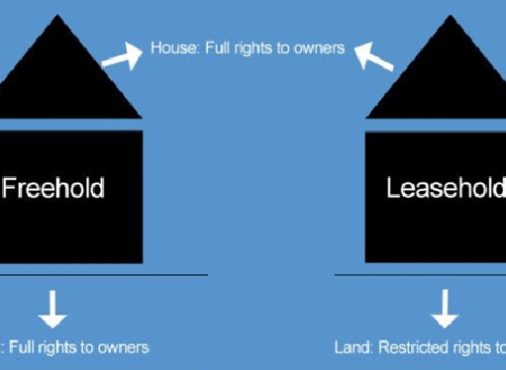Investing in a luxury property goes beyond owning a stunning home to include a remarkable financial investment. The value of the property determines the risks involved alongside the profits obtainable, so striking a balance is important.
Taking premium real estate investments further requires having a plan for maximising returns; to achieve them, tax strategy must be part of the investment execution.
In this blog post, we will be covering why tax planning is a must for luxury property investors and the benefits of luxury real estate investments.
Depreciation Benefits & Deductions
Depreciation is one of the most valuable tools in a luxury property investor’s tax toolkit. Even though real estate often appreciates in market value, the tax system allows owners to claim depreciation as if the property were losing value over time due to wear and tear.
How Depreciation Reduces Taxable Income
For residential properties, the standard depreciation schedule is 27.5 years, while commercial properties are depreciated over 39 years. This allows you to deduct a portion of the property’s value from your taxable income every year, significantly lowering your overall tax burden, even if the property’s market value is rising.
For high-value properties, the amount of annual depreciation can be substantial, resulting in meaningful tax savings over the long term.
Capital Allowances and Tax-Friendly Deductions
In addition to depreciation, capital allowances offer further opportunities for tax efficiency. These allow you to deduct the cost of certain qualifying assets, such as HVAC systems, lighting, lifts, or furniture, which is particularly relevant in luxury homes and serviced residences.
Moreover, property investors can take advantage of a range of tax-deductible expenses, including:
- Mortgage interest.
- Property taxes.
- Repairs and maintenance.
- Property management fees.
- Legal and professional services.
Collectively, these deductions can significantly reduce taxable income, improving the investment’s profitability.
Tax Advantages for Rental Income
Rental income from luxury properties is taxable, but a smart investor knows how to reduce the net taxable amount through deductible expenses.
Reducing Tax Liability Through Property Expenses
Every cost associated with maintaining and managing the property can typically be written off.
This includes:
- Routine maintenance.
- Staff salaries (for properties with dedicated staff).
- Marketing and advertising for tenants.
- Depreciation and loan interest.
Especially in luxury real estate, where operational costs are higher, these deductions can make a big difference, sometimes even resulting in little to no tax liability on rental income.
How Rental Losses Can Be Offset Against Other Income
In cases where rental expenses exceed income, the resulting loss can often be used to offset other income streams, such as salary, dividends, or interest. This is especially useful for high-income individuals looking to reduce their overall tax exposure.
While the Internal Revenue Service (IRS) considers most rental income as passive, real estate professionals or those actively managing their properties may qualify for more generous deductions. Knowing where you fall within this classification can unlock significant tax benefits.
Also Read: The Elite Lifestyle in Pali Hill: Why It’s the Most Desirable Address in Mumbai
Estate & Inheritance Tax Considerations
Luxury properties often represent a major component of an individual’s estate, making inheritance and estate tax planning essential.
Strategies to Minimise Estate Tax on Luxury Properties
Without proper structuring, a significant portion of your estate could be lost to taxation upon transfer to heirs.
Some effective strategies to reduce estate taxes include the following:
- Lifetime Gifting: Gradually transferring ownership using annual gift tax exclusions.
- Valuation Discounts: Discounts are applied for minority ownership or lack of marketability when valuing gifted property interests.
- Irrevocable Trusts: Moving the asset out of the taxable estate while still allowing for income benefits.
Each strategy has its nuances, and working with a tax advisor ensures that they’re implemented in a compliant and tax-efficient way.
The Role of Trusts in Property Succession Planning
Trusts are a powerful estate planning tool, particularly in the context of luxury real estate. They not only help reduce estate taxes but also provide privacy, asset protection, and control over how the property is managed or distributed after your passing.
There are various types of trusts, including:
- Living Trusts: Useful for avoiding probate and maintaining control during your lifetime.
- Dynasty Trusts: Designed to hold wealth for multiple generations with reduced tax exposure.
- Qualified Personal Residence Trusts (QPRTs): Specifically structured for primary residences to minimise estate tax.
Establishing a trust ensures your luxury property is protected, well-managed, and passed on according to your wishes, making it a true legacy asset.
International Tax Considerations for Foreign Investors
Mumbai’s luxury real estate market continues to attract international investors, many of whom are drawn by the city’s rapid growth, stable property values, and prestige. However, owning property abroad comes with cross-border tax implications that can impact returns if not managed correctly.
Tax Treaties and Benefits for Non-Resident Property Owners
India has signed Double Taxation Avoidance Agreements (DTAAs) with over 90 countries. These treaties are designed to prevent foreign investors from being taxed twice, once in India and again in their home country, on the same income.
Under these agreements, foreign investors may be eligible for:
- Reduced withholding tax rates on rental income or capital gains.
- Tax credits or exemptions in their home country for taxes paid in India.
- Clarified residency rules that help determine which country has taxing rights.
By leveraging these tax treaties, non-resident investors can significantly lower their tax liability while ensuring full legal compliance.
Offshore Investment Strategies for Tax Efficiency
For ultra-high-net-worth individuals (UHNWIs) and family offices, offshore investment vehicles offer an additional layer of tax efficiency, especially when dealing with multiple international assets.
Popular strategies include:
- Holding companies in low-tax jurisdictions such as Singapore, UAE, or Mauritius can reduce capital gains and withholding taxes.
- Setting up international trusts or foundations that protect wealth and facilitate intergenerational transfer.
- Creating multi-jurisdictional structures that separate ownership, control, and income to optimise tax positioning.
However, transparency regulations have become stricter globally (e.g., FATCA, CRS), and poorly structured offshore entities can attract scrutiny. As such, working with an international tax advisor is essential to ensure compliance and optimise benefits.
Also Read: Why Sky Mansions at Rustomjee Crown is a Symbol of Prestige in Prabhadevi
Conclusion
For high-net-worth investors, understanding the interplay between legal structures, income optimisation, and tax liability is crucial to unlocking the full potential of luxury property.
If you’re seeking a home that offers more than just exquisite design and location, one that also aligns with sound financial planning, Rustomjee offers a rare opportunity.
Designed for discerning investors, it combines premium living with strategic advantages, placing you at the heart of Mumbai’s most coveted neighbourhood. Contact us today to explore the premium properties and take a step ahead to fulfil your dreams.
FAQs
- Can rental income from luxury properties be tax efficient?
Yes. Expenses related to property upkeep, management fees, and even loan interest can be deducted from rental income, reducing overall tax liability.
- How does depreciation work for high-end properties?
Depreciation allows investors to spread out the cost of the building over several years, which reduces taxable income annually, even if the property appreciates in market value.
- Is it beneficial to own a property through an LLC or a trust?
Yes. LLCs offer liability protection and flexible tax treatment, while trusts help with estate planning and smooth property succession, especially in family wealth strategies.








